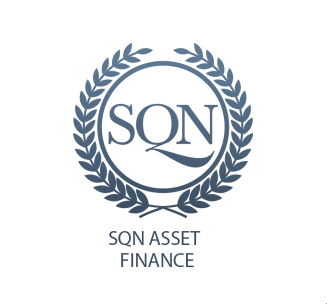Leasing sector company, SQN Asset Finance Income (SQN), has released a detailed investment update from its manager, KKV Investment Management (KKV). KKV took on responsibility for the portfolio in June.The update covers SQN’s ordinary and C share classes.
‘Sustainable dividend unlikely to be re-established in the near future’
Some of the high-level highlights made in the report, include:
- “It is unlikely that a sustainable dividend can be re-established in the near future. KKV will need to establish clarity around the timescale that project finance transactions can deliver income on a cash basis as opposed to accruals, which is dependent on the extent of the Covid-19 impact and the speed at which borrowers can return to near normal operational capacity.” SQN suspended the declaration of further dividends in March, which we covered here.
-
“Shareholders are advised that an initial analysis of IFRS9 impairment provisions indicate the need for additional provisions of circa £20m to £24m for the Ordinary Share portfolio and £8m to £10m for the C Share portfolio. Over the next two weeks KKV will conduct further detailed analysis so that more precise recommendations for impairment can be provided to the board for inclusion in the 30 June 2020 NAV.”
- With regard to the ordinary share class: “Approximately 40% of the portfolio of the ordinary share portfolio is considered ‘strong’ or ‘performing’. The balancing 60% is considered either ‘stressed’ or ‘distressed’ and KKV proposes further impairments to the loans in this pool by circa £20m – £24m.”
-
With regard to the C share class: “Approximately 70% of the C Share portfolio is considered ‘strong’ or ‘performing’. The balancing 30% is considered either ‘stressed’ or ‘distressed’ and KKV proposes further impairments to the loans in this pool by circa £8m – 10m. Availability of cash for dividend distribution has been depleted due to recent commitments of capital to existing borrowers during May 2020 but the pool remains with a satisfactory liquidity outlook.”
More circumspect outlook than wider financial markets
“Highly volatile pricing of all assets across the risk spectrum and intermittent volatility spikes have been facets of all fixed income sectors during 2020. All credit products fell violently from March onwards and this was particularly severe for higher yielding assets with even US Treasury bonds briefly affected by a liquidity squeeze. Since the introduction of emergency market support packages from central banks, such as the US Federal Reserve, the European Central Bank and the Bank of England, these markets have settled but the economic picture remains uncertain.
As developed economies in the US, UK and Europe begin to ease lockdown measures, market commentators have remained expectant of a so-called V shaped recovery as businesses begin to emerge from their forced hibernation. Our appraisal is more circumspect and despite spreads tightening in recent weeks for investment grade credits, as companies shore up their balance sheets with additional borrowing, we are particularly focussed on data relating to SME performance and securitised products such as CLOs and lower sub investment grade markets where the greatest pain has been observed. We expect coupon obligations to be put under pressure and forbearance to be the watch word for the next 9-12 months.
SME business confidence has fallen sharply and lower turnover due to Covid-19 has caused severe cashflow difficulties for many businesses, increasing demand for working capital finance. This has been coupled with a sharp increase in demand for loans and the uptake of government backed schemes encouraging commercial banks to lend into the sector. Easing of credit criteria for loans by these banks, has a second derivative effect of weakening capital adequacy and it is our expectation that once markets begin to normalise, lending patterns will revert to more conventional levels, allowing alternative lenders to pick up the baton once again.
The speed of recovery is unclear at the present time. By way of stark illustration, unemployment in the US increased by 14 million in six weeks at the height of the Covid -19 emergency whereas the total number of those losing jobs between June 2008 and June 2009 was 3.5 million and it took four years for employment to return to pre-recession levels. Reversal of lost jobs takes time for an economy to absorb and so we expect this to impact consumption and consumer confidence. For lenders and borrowers alike, the safest route to normalisation is to keep sustainable businesses alive with support and forbearance including maturity extensions and interest or amortisation “holidays”, to enable them to resume trading and servicing their loans as rapidly as possible; an approach KKV has adopted across its portfolios.
For investors, the reduction in dividend and share buy-back programmes across the equity market landscape, should focus attention on regular coupon paying fixed income strategies. These are contractual and any missed coupons are rolled up, unlike missed dividend payments. Once the current and immediate crisis subsides, regular income will be a highly valued commodity.”
To access the full release, including detail on the sector, geographical, and maturity mix of SQN’s portfolio, please click here.
SQN: SQN Asset Finance Income’s manager says sustainable dividend unlikely to be re-established in the near future
